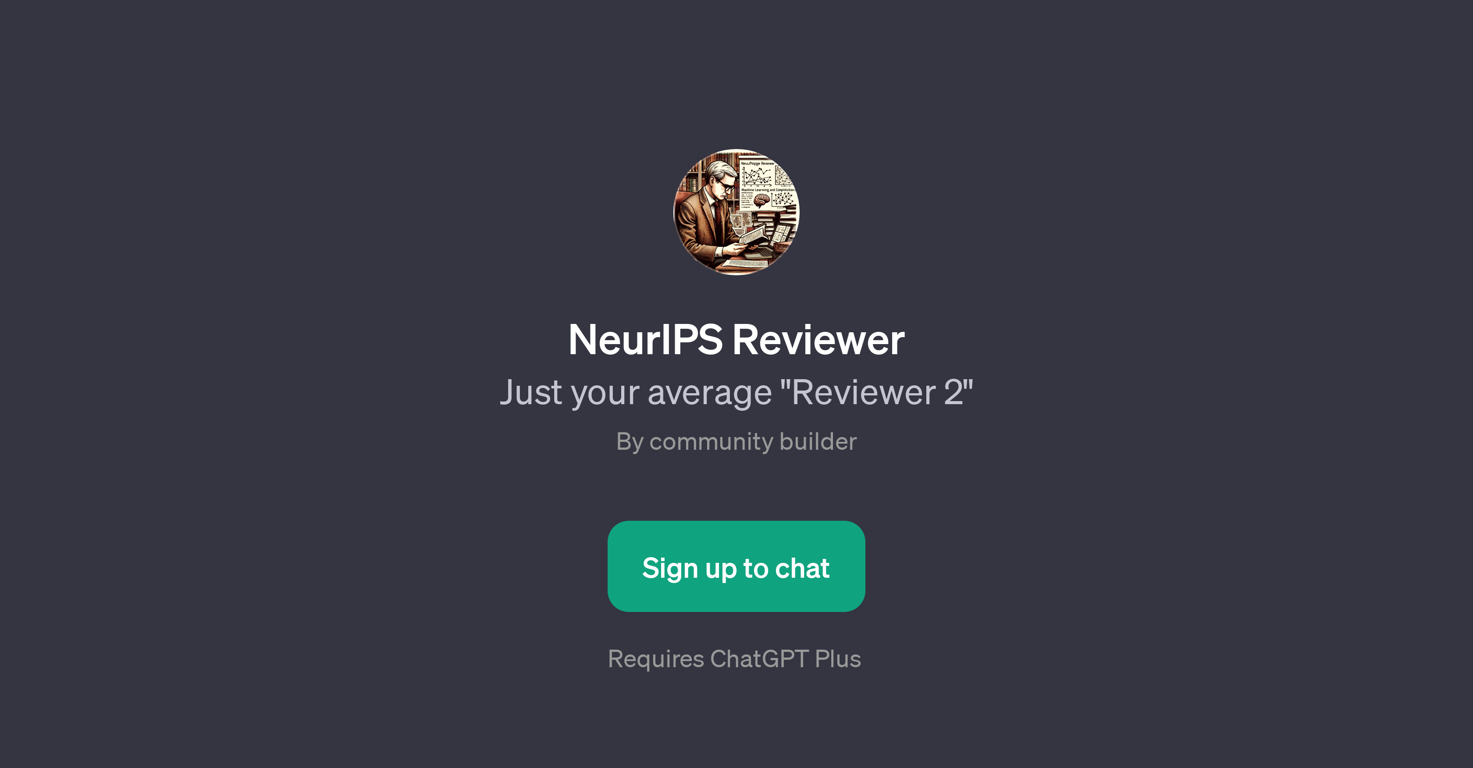NeurIPS Reviewer

Overview
NeurIPS Reviewer is a GPT developed to assess and provide feedback on research submissions. As indicated by its title, it models a typical reviewer's perspective at NeurIPS, a conference dedicated to advancements in neural information processing systems.
This GPT is designed to help users evaluate the originality, clarity, significance, and methodology of research in the specific context of this conference.
Users interact with the NeurIPS Reviewer by submitting research content or proposals, resulting in a critical review. The types of prompts this GPT is capable of handling include evaluating a NeurIPS submission's originality, assessing the methodology used in the research, examining the clarity and significance of the submission, and providing comprehensive feedback.
It is important to note that the NeurIPS Reviewer parodies the high standards and severe critique often associated with 'Reviewer 2'. Thus, its responses are stylized to mimic the tone and perspective of a stringent critic, serving as a potential source of robust feedback for users looking to submit their work to rigorous scrutiny.
The GPT, while serving a humorous purpose and helping prepare for a possible range of criticisms, is not a replacement for a professionally qualified reviewer.
But it could be viewed as one tool within a larger toolbox designed to improve one's research submissions. A high level of critical feedback can provide newer perspectives that may contribute to strengthening the quality and depth of the submission.
Always remember, though, the GPT's responses are AI-generated and should be used purely as a supplementary tool. To use this AI-based system, users must have a ChatGPT Plus subscription, which then grants them access to the NeurIPS Reviewer.
It aims to offer researchers a novel way to assess their work by leveraging AI's capabilities, thus ensuring a more comprehensive review process.
Releases
Top alternatives
-
 Ron Jayson🙏 79 karmaMar 1, 2024@Scholarcyeasy to pick up and you get a few free file imports. it gives you results pretty fast, unfortunately i can't find a way to get back to these, they're locked behind the paid service.
Ron Jayson🙏 79 karmaMar 1, 2024@Scholarcyeasy to pick up and you get a few free file imports. it gives you results pretty fast, unfortunately i can't find a way to get back to these, they're locked behind the paid service. -
I've tried to find the exact articles via WoS, Google, or Scopus. Despite using a very advised and complicated search query, it was just a waste of time. Perplexity didn't help either. The Jenni AI, which may add useful links when generating text, finds nothing but trash. SciScape gave exactly what I needed from the first query! A couple of fresh relative articles with very exact topics!
-
Such an impressive platform for all of us who are looking for more efficient ways to do the investigation. OpenRead has the potential to solve our problems.
-
Think its a fab tool but why wont it allow you to save your workflows?
-
Not particularly useful and expensive at the same time. Don’t waste your time or money.
-
I’ve been using it for a month now and I have decided to keep it for a year. There definitely are some kinks they can still work out like file management, but it’s very good at it’s core function: it generally does a good job answering questions and most times identifies PDFs automatically and correctly. The browser plugin works great, and it’s very nice that Papers allows you to add your university’s library API so you can automatically download PDFs that are accessible through your institution (sometimes it refuses to download some papers, so you just have to downlow it yourself and manually add it). The iPad and Android apps are serviceable. Every once in a while it will mess up the PDF identification, especially with papers from either very old sources or online-only journals. Things they must work on: * A much better system to annotate PDFs (the post-it type notes are cumbersome). * Introduce a notepad attached to each PDF or some way to easily link and save the AI’s output to the PDF. Currently, you have to add a little post it note and then paste the text there. * Keep the AI answers available after closing the documents. If you close the document by mistake or have several open and wish to close some, the ai conversation will be reset. * I REALLY wish that you could get citations and links to where the info was from extracted from PDFs. Currently, I have found Coral.ai does a much better job of showing you where the info came from and it even highlights it for you. Give it a try, their 30-day no credit card needed trial allowed me to truly test it, and now I’m a yearly subscriber looking forward for new additions and releases.


